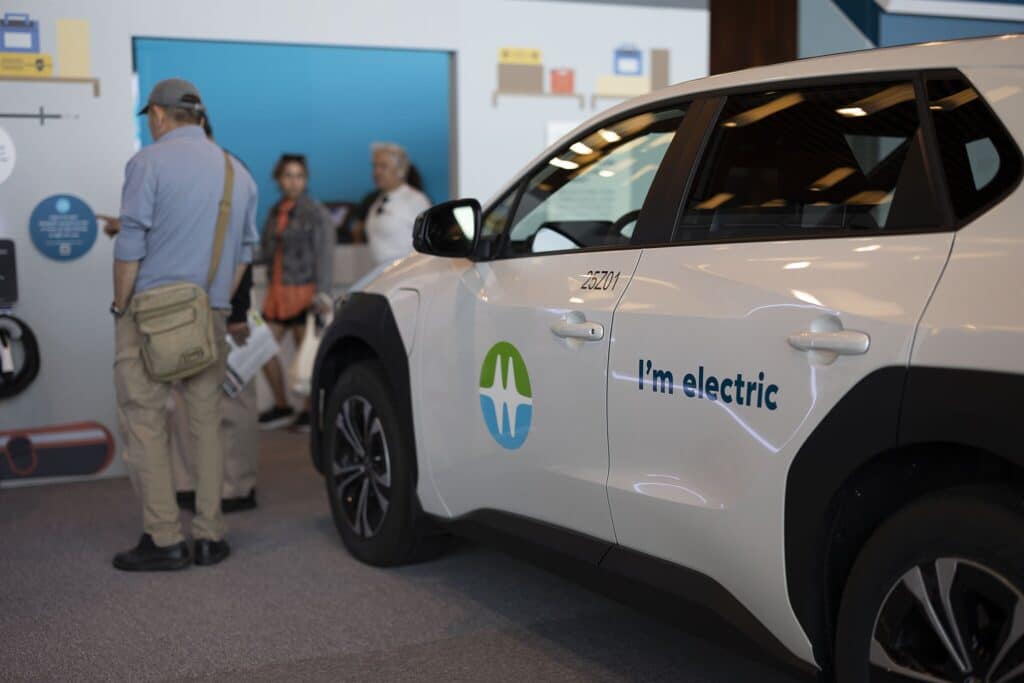Zero-emission Vehicles Reach 12.9% of all New Registrations in Canada for Q2
On September 9, 2024, Statistics Canada reported that in the second quarter of 2024, Canada saw a notable increase in new motor vehicle registrations, with a total of 511,173 vehicles registered, marking the highest figure since before the COVID-19 pandemic (Q3 2019). This represents a 7.9% increase compared to the same period in 2023.
The data highlights a shift toward multi-purpose vehicles, which accounted for 61.8% of all new registrations, with a 12.7% growth from the previous year. Pickup truck registrations also rose by 3.7%, while passenger cars and vans saw declines of 2.0% and 0.4%, respectively.
New registrations across all fuel types also increased. Plug-in hybrid electric vehicles (PHEVs) led the growth with a 43.1% rise, followed by battery electric vehicles (BEVs) with a 36.1% increase. Diesel vehicles grew by 5.8%, hybrid electric vehicles by 5.0%, and gasoline-powered vehicles by 4.5%. This trend highlights the growing adoption of electric and hybrid vehicles in Canada.

New Zero-Emission Registrations Make up 12.9% of All New Registrations
In the second quarter of 2024, Canadians registered 65,733 new zero-emission vehicles (ZEVs), representing 12.9% of all new vehicle registrations. This marks a significant 37.9% increase from the same period in 2023, when 47,683 ZEVs were registered, accounting for 10.1% of total registrations.
Of the new ZEV registrations, 73.8% were battery electric vehicles (BEVs), and 26.2% were plug-in hybrid electric vehicles (PHEVs). Canadians favored multi-purpose ZEVs, which made up 80.1% of new ZEV registrations. Compared to the same quarter last year, ZEV registrations saw substantial growth in pickup trucks (+113.1%), multi-purpose vehicles (+45.7%), and passenger cars (+9.4%), while ZEV registrations for vans decreased sharply by 53.1%.
This trend highlights the growing preference for ZEVs, especially in the multi-purpose and pickup truck segments.
“We’re past the early adopter phase,” said J.D. Ney at the market research firm J.D. Power, referring to customers who adopt new technologies before most other people.
“The next step, though, is to convince a much wider swath of Canadians that electrification is right for them,” continued Ney.
That mainstream buyer, Ney said, is more practical and has a lower budget, so it will take extra effort to convince them to ditch gas-powered cars.
Canadian Government EV Roadmap
Canada’s federal government has implemented new regulations to accelerate the shift to electric vehicles (EVs), setting ambitious targets for automakers. By 2026, 20% of all new cars sold must be zero-emission vehicles (ZEVs), increasing to 60% by 2030 and reaching 100% by 2035.
However, automakers have expressed concerns that these goals may be difficult to achieve without additional government support for expanding EV charging infrastructure and addressing the affordability of electric vehicles.
Since 2019, the federal government has provided financial incentives to encourage EV adoption, offering up to $5,000 toward the purchase of eligible zero-emission vehicles, helping to reduce upfront costs for consumers. While the incentives are a step forward, automakers argue that further efforts, including improving EV affordability and access to charging, are crucial for meeting the government’s targets.
Several Canadian provinces offer additional incentives to complement federal rebates, providing further savings on electric vehicle (EV) purchases. Quebec has the most generous rebate program, offering up to $7,000, which has significantly boosted EV adoption in the province. However, these subsidies are set to decrease starting next year and will eventually be phased out. Other provinces like British Columbia, Manitoba, and the Atlantic provinces, as well as the Yukon, also provide various incentives to encourage EV adoption.
Despite these incentives, the higher upfront cost of EVs compared to gas-powered vehicles remains a major barrier for mainstream buyers. For example, while a gas-powered Toyota RAV4 costs about $36,215, the all-electric Hyundai Ioniq 5 comes with a price tag of $57,676 (without incentives), which can cause sticker shock.
Canada recently imposed a 100% tariff on EVs imported from China, driving prices higher. This move is likely aimed at protecting domestic industries and addressing concerns over China’s trade practices. The tariffs will affect all EVs coming from China.
Experts believe that as EV technology continues to improve, the price gap between EVs and traditional vehicles will narrow, likely toward the end of this decade. A report by the Parliamentary Budget Officer indicated that for EVs to become more attractive to consumers and meet federal targets, the overall costs would need to decrease by 31%. This reduction is seen as crucial for increasing demand and accelerating the transition to electric vehicles in Canada.

Electric Vehicle Marketing Consultant, Writer and Editor. Publisher EVinfo.net.
Services